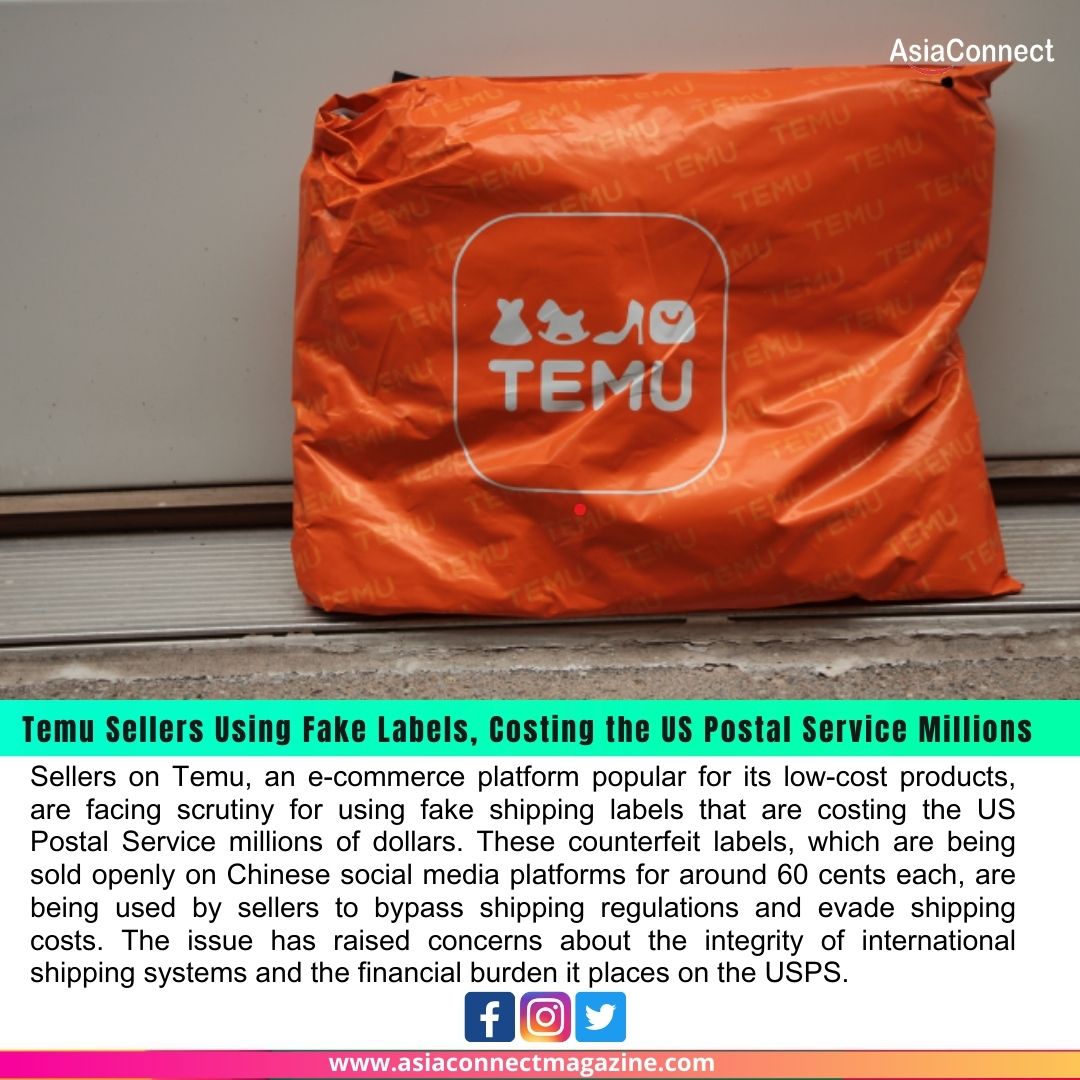Sellers on Temu, an e-commerce platform popular for its low-cost products, are facing scrutiny for using fake shipping labels that are costing the US Postal Service millions of dollars. These counterfeit labels, which are being sold openly on Chinese social media platforms for around 60 cents each, are being used by sellers to bypass shipping regulations and evade shipping costs. The issue has raised concerns about the integrity of international shipping systems and the financial burden it places on the USPS.
Fake Labels: A Growing Problem in Global E-Commerce
The use of fake labels is not a new issue, but it has become more widespread with the rise of international e-commerce platforms like Temu. These platforms have created a convenient marketplace for cheap products, often sourced from China, to reach consumers around the world. However, as sellers look to cut costs and maximize profits, some have turned to counterfeit shipping labels as a way to falsely report package origins and reduce shipping fees.
These fake shipping labels often mimic those used by legitimate couriers like the USPS, allowing sellers to ship products without paying the correct postage. For instance, the labels may show that a package is coming from within the US, when in reality, it is being sent from overseas. This practice not only skews the true origin of packages but also causes logistical and financial headaches for postal services, especially the USPS.
The Cost to the USPS: Millions in Losses
The widespread use of these fake labels is placing a heavy financial burden on the USPS. According to reports, the USPS is losing millions of dollars each year due to these fraudulent activities. When fake labels are used, the USPS is left covering the cost of delivering packages without being compensated for the full postage. The counterfeit labels undermine the postal system’s ability to collect the necessary shipping fees, resulting in a direct loss of revenue.
Additionally, these fake labels contribute to inefficiencies within the postal service, as packages may be delayed or routed incorrectly. This puts more strain on the USPS, which is already facing challenges with high volumes of mail and limited resources. The issue also raises concerns about the integrity of the shipping system, as counterfeit labels make it more difficult for postal services to track and verify the origin and destination of packages.
Open Sale of Fake Labels on Social Media
The fact that fake shipping labels are openly sold on Chinese social media platforms has amplified the problem. These platforms have become breeding grounds for counterfeit label sales, with sellers promoting fake labels to anyone looking to cut shipping costs. The price is typically low—around 60 cents—making it an attractive option for sellers looking to bypass shipping regulations and avoid paying the full cost of postage.
The fact that these labels are sold openly raises questions about the regulatory framework surrounding international e-commerce. While platforms like Temu strive to provide affordable products to consumers, the use of fake labels is an illegal and unethical practice that undermines the integrity of global shipping networks. Law enforcement agencies are now being called upon to take action against the sale and use of these counterfeit labels.
Potential Solutions: Addressing the Root Causes
Addressing the issue of fake labels requires a multifaceted approach that involves e-commerce platforms, postal services, and government authorities. First and foremost, platforms like Temu must strengthen their monitoring systems to prevent sellers from engaging in fraudulent activities. This can include stricter vetting processes for sellers and improved detection of suspicious transactions.
Secondly, international shipping regulations need to be updated to better handle the complexities of cross-border e-commerce. Collaborations between postal services and customs authorities could help identify and intercept fraudulent shipments before they are processed. Additionally, consumers and postal workers should be educated on the signs of counterfeit labels to ensure better detection and reporting.
Conclusion: A Call for Reform
The use of fake shipping labels by Temu sellers is a significant issue that is costing the USPS millions of dollars and complicating international shipping systems. As the e-commerce industry continues to grow, it is crucial for governments, postal services, and e-commerce platforms to work together to address these fraudulent practices. Until stronger measures are put in place, the USPS and other postal systems will continue to bear the financial burden, potentially leading to higher shipping costs for consumers and further strain on postal services worldwide.





